Teachers reflect on students who impacted their lives
December 15, 2021
Some teachers encounter students who impact or change their lives in a positive way. Julie Schreiber, Douglas Sipes and Jennifer Lowe are some of the teachers who have been impacted by students throughout their careers.
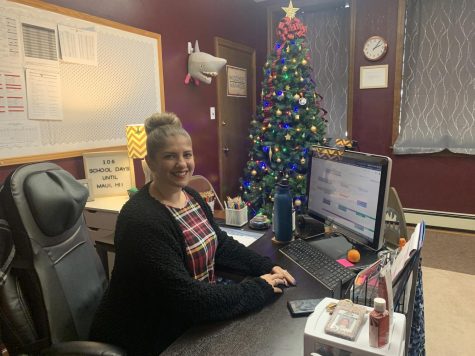
Throughout her entire teaching career, ACA teacher, Julie Schreiber, has been positively impacted by all of her students. Although she stated that she has felt an impact from many, the student who impacted her the most is Zachary Hoover.
Schreiber first met Hoover in 2012 when she was a substitute teacher at the junior high and was happy once he became one of her students again when she was employed by the district.
“After I had been hired at the high school, I had the pleasure of instructing him again in the Altoona Cyber Academy during his senior year (2016-2017),” Schreiber said.
At the time, Hoover received chemotherapy as he battled cancer and became a part of the cyber academy. From his experiences, Schreiber felt a change in her life; she said he taught her valuable lessons, which she will always carry with her.
“Zach taught me lessons that I will never forget: how to be more patient, compassionate, flexible and positive. His perseverance in the face of such immense adversity instilled in me a drive to not only better myself as a teacher, but also to better myself as a person,” Schreiber said.
When Schreiber reconnected with Hoover, they were able to form a better teacher/student relationship when she became concerned about his health and discussed his school work as it was a distraction from the way he felt.
“As teachers, we love our students and care about them beyond our classrooms, but with Zach and his dire health circumstances, my level of concern and care for him had grown beyond what I had ever known before. Of course, I wanted him to be a successful student, but more importantly, I wanted him to be a healthy kid. I am happy to say that our relationship continued after he graduated, and we stayed in touch as he began to attend college,” Schreiber said.
According to Schreiber, knowing Hoover has allowed her to change the way she teaches and connects with her students.
“First and foremost, I am much more flexible. It has become easier for me to allow late work, extensions, half credit, etc. simply because Zach taught me that there can be so much more going on behind the scenes in a child’s life, and that due dates aren’t always the most important things for students. I also find that I am more concerned with truly making some sort of meaningful connection with each of my students outside of the classroom, whether it be supporting them at a sporting event, club activity or sharing in their personal interests. Showing that kind of support is very important to me, and I think students tend to appreciate that more than most people realize,” Schreiber said.
As Schreiber became a part of Hoover’s life and was aware of his struggle with cancer, she gained a better understanding of a student’s point of view.
“He helped me understand that sometimes a student has much more to worry about than completing a grammar quiz or a short story analysis. Oftentimes, as a teacher, giving an extension on an assignment or allowing late work to be turned in for credit, can be an enormous help for students who are struggling. I try my best to be more cognizant of these issues when any of my students might start falling short of academic success,” Schreiber said.
At a certain point in her communication with Hoover, Schreiber really felt an impact when he introduced her to something new as he was faced with the decision to amputate his leg.
“He handled it all with such a calm and positive attitude. This moment in his life even bolstered the foundation for his post-secondary studies in Electromechanical Engineering. He hoped to one day create prosthetic limbs to improve others’ quality of life. He would update me about his progress every month or so and shared his excitement about what he hoped to do in the future. To this day, I love researching and reading about all of the new advancements in this field,” Schreiber said.
There are many words Schreiber could use to describe Hoover and how he changed her life, but one word she feels that describes him the best would be tenacious.
“There is an inexhaustible number of adjectives I could use to describe Zach; however, if I had to choose only one, it would probably be tenacious. In spite of his many recurrences of cancer throughout his battle, Zach remained ever-determined to fight and remain optimistic. He never gave up and continued to enjoy living his life in a way that was such an inspiration to me. He still planned for the future, he still saw the joy in each day and he still remained thankful for all that he had,” Schreiber said.
After knowing Hoover for so long, Schreiber would give anything to speak with him again and would want to ask him a specific question.
“Sadly, he lost his on-going battle with cancer in October of 2019. To say it was one of the hardest times in my career is an understatement. I was blessed beyond measure to have had the opportunity to be his teacher and remain close with him after graduation. However, if I had the chance to ask him a specific question, I would want to know if he’d like to finally go meet up and get that coffee I promised him a while back,” Schreiber said.
Even though Hoover has passed, Schreiber remembers him and is thankful that he made such an impact on her life.
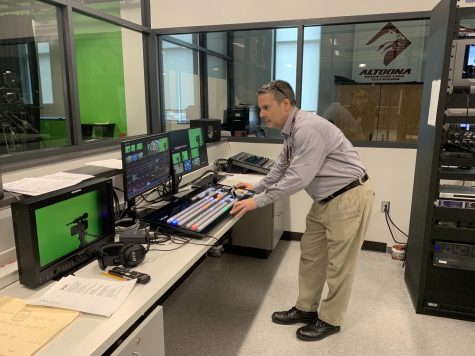
Broadcasting teacher, Douglas Sipes, states that he has been impacted by many students over the years as he was impressed by the accomplishments and goals his students have strived to achieve. A specific student who stands out in his mind for how she have impacted his life is Jessie Riley.
During her three years of high school, Riley was a part of Sipes broadcasting program, and he enjoyed having her in his class for multiple reasons.
“She was one of the most honest, hardworking and sincere students I’ve ever taught in my career. She was so much fun and was a true leader in the program,” Sipes said. “There were so many great students, not only in that year, but over all of the years, but she was truly special. She was one of four sisters and one brother I was privileged to have taught in MLTV; however, she stood out for so many reasons.”
When Sipes met Riley, her personality and actions allowed them to form a relationship as he had more appreciation for his job.
“Jessie always knew what to do and when to do it. She always worked hard whether it was on a project in Broadcasting or an outside job or another class. She just went out of her way to be kind and treat everyone with respect. She was truly special to me the first time she walked into Broadcasting I in tenth grade. Her enthusiasm and happiness was contagious and just made me appreciate my job and how fortunate I was to have such wonderful students. She had so much positive energy and rubbed off on all of us,” Sipes said.
After Riley passed away in a car accident, Sipes realized important things as a teacher and made better connections with his students.
“Jessi was killed in a car accident about seven months after graduation, and it made me truly aware of how short life can be and how I should never take any of my students for granted,” Sipes said. “As a teacher who has several students for three to four years in a row because of the nature of the broadcasting program, many students become like a family and some of those bonds last a lifetime. I’ve learned to never get bored or tired about hearing of future success and it makes me proud to know that I may have had some impact on students to help show them the skills to make them successful.”
Forming connections with his students and Riley has given Sipes the opportunity to understand student life and what it means to them to have a friendly learning environment.
“Whether it was broadcasting or theater or music or sports, students in general want to learn and need interesting programs to become self disciplined in order to be successful in life,” Sipes said.
With the help of Riley and other students, Sipes is able to remember something very important about his career.
“There have been times in my career where I have taken it for granted or been caught up in the negatives of teaching; however, eventually it is a student like Jessi or any of the hundreds of positive students I’ve taught over the years who have not introduced but reinforced why I chose to become a teacher. I really enjoy being around kids and although I don’t have the energy I once had, I will miss them all dearly when it is time to wrap up my career,” Sipes said.
Sipes has felt an influence from Riley for the student she was and describes her using a single word: inspiring.
“Teaching is such a difficult profession, and it can be quite overwhelming most of the time. However, when you have students like Jessi who always come in with a positive attitude and not only want to work but produce really good work it often gives you the positive energy to go on. Just as students who constantly cause problems and issues with everyone around them, a student like Jessi can inspire a teacher to be creative and be positive. In all of my years at AAHS, I’ve had so many creative and inspiring students and it always affects you in a good way, especially when things are a bit rough,” Sipes said.
If Sipes could speak to Riley again, he would want to tell her something special.
“I would let her know, as I know she would get down at times, that her life inspired so many of us and those of us who knew her will always miss her,” Sipes said.
As a teacher, Sipes wants Riley and other students of his to know what an impact they have made on his life.
“I just want students to know that not only can a teacher have a great and positive impact on your life, but you as a student, can have a lifetime of impact on your teachers as well, so do your best to make it a positive one,” Sipes said.
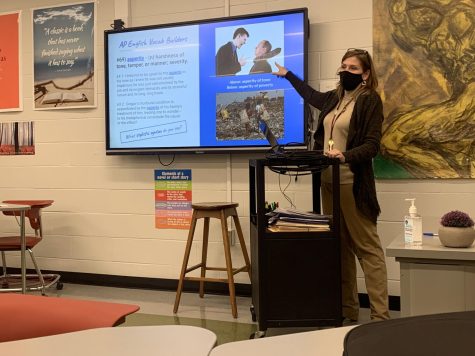
Over the summer, English teacher, Jennifer Lowe, was contacted by a student who graduated and wanted to talk. From this experience, Lowe felt a great impact as he expressed the mark she left on his life and where his life had gone since graduating.
Lowe experienced this student in her class six years ago but was able to feel an impact from him when they met again.
“He made me see again why I wanted to teach because it is easy to get caught up in the paperwork and the things that you have to do, but really the reason I want to teach is to have an impact on people’s lives and help them to be better human beings and be successful in their futures,” Lowe said.
A relationship was developed between the student and Lowe when he was a part of a smaller class and got to be more interactive within the class.
“I had a student in an advanced English course and it was a smaller class, so he probably had an opportunity to interact more because there were more class discussions and fewer students, so there was a little bit more opportunity to engage and get to know each other,” Lowe said.
Having a student that impacted Lowe also influenced the way she teaches her students, especially after experiencing a pandemic.
“It has really given me more of a positive view on my profession, which allows me to have a positive view on what I am doing in the classroom,” Lowe said. “I am feeling reinvigorated and inspired and hoping that I am communicating that positivity to my students because it is very much something you need in the classroom now that we’re coming back from being virtual with the pandemic, and we’ve lost a lot of those connections with each other because of the screens separating us and just wanting to have that relationship again with the students that was missing. I feel more inspired to build those relationships again.”
When meeting with the student again, Lowe learned about his true experiences, which helped her to understand a student’s life.
“One of the things in engaging with a student after he had his life experiences for several years was his ability to be honest with me about what was going on with him when he was actually in high school, things that I didn’t know that were impacting him,” Lowe said. “It has given me the reminder that I need to always remember that a student’s home life may not be something I am aware of and when students leave the building, there is a whole other world that they are experiencing that is presenting them challenges which can make it difficult when they are in school.”
The student’s career path allowed Lowe to think of other paths for students’ futures.
“I am thinking about where his career path is taking him, and it did kind of open my eyes to looking at alternatives for students beyond the traditional four year college route that a lot of students take. There are a lot of other possibilities out there that are good for them when it comes to opening up their worlds a little bit,” Lowe said.
As Lowe became familiar with this student’s experiences, she described him with a word that fits him best.
“Inspirational because of what the person has endured, and I am seeing that as being inspiring to me but also inspirational in that he shows that people who are experiencing adversity can persevere and be successful,” Lowe said.
Even though Lowe was able to see this student over the summer, she would still want to ask him a question.
“I want to know how he is doing now and what from his high school experience has he been able to use to help him in his life so that I can better understand how to learn from that and help other students with that information,” Lowe said.


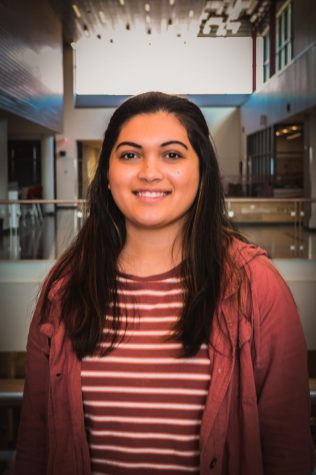
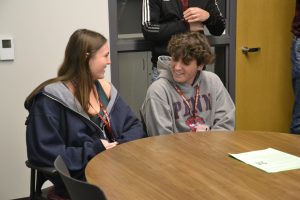

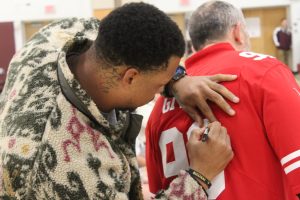
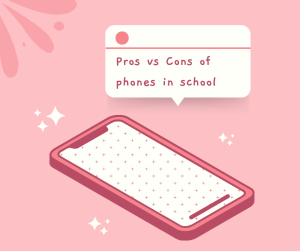
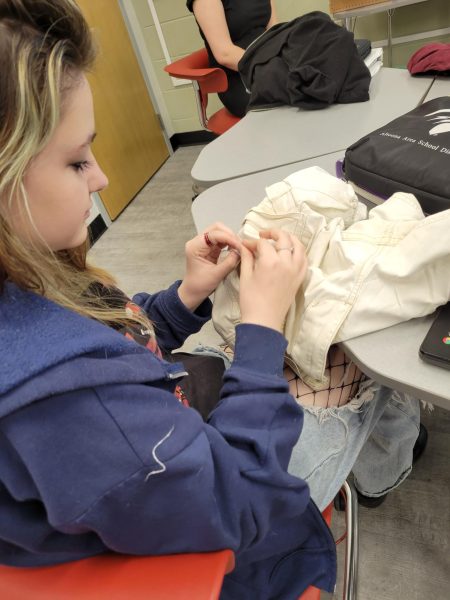
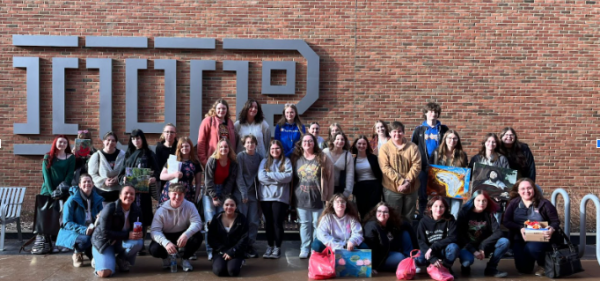
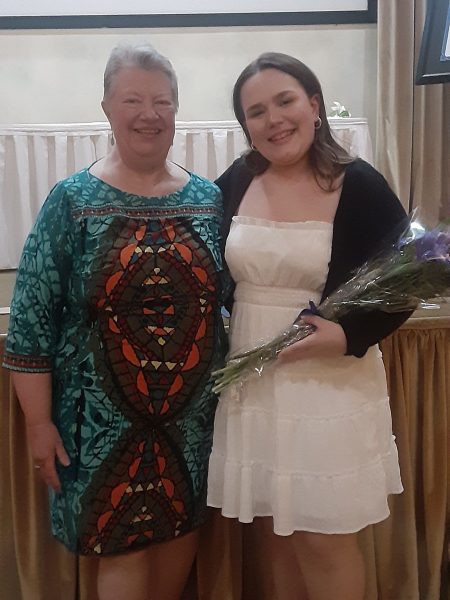
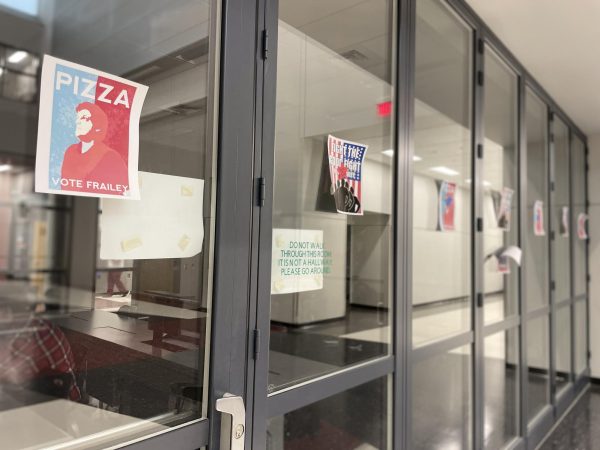
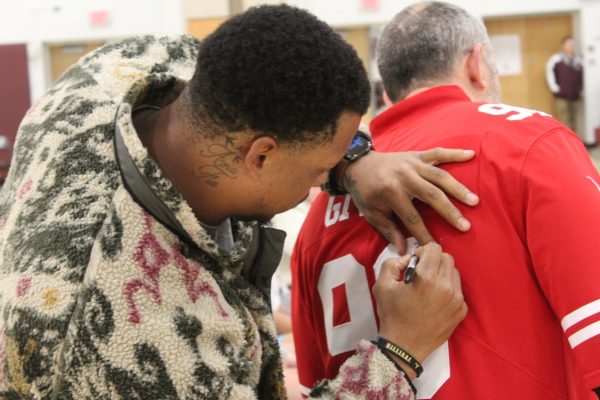
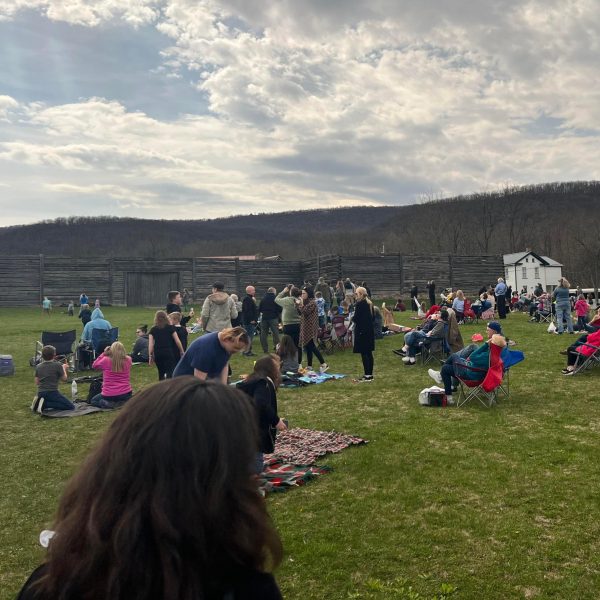
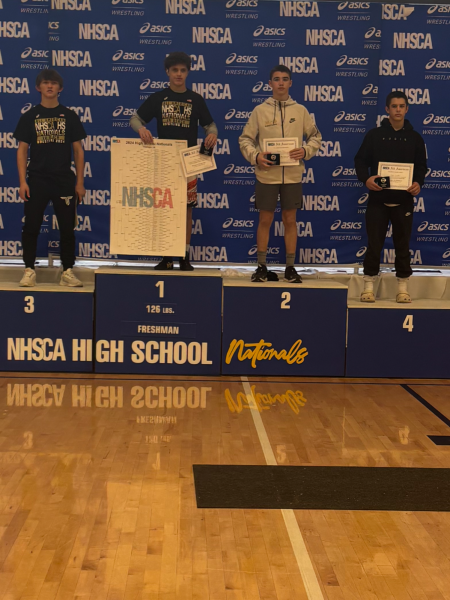
![Dedicated. Teachers who live far away commute for at least an hour to work each day. [Made with Canva]](https://aahsmountainecho.com/wp-content/uploads/2024/04/teacher-commute-picture-424x600.png)
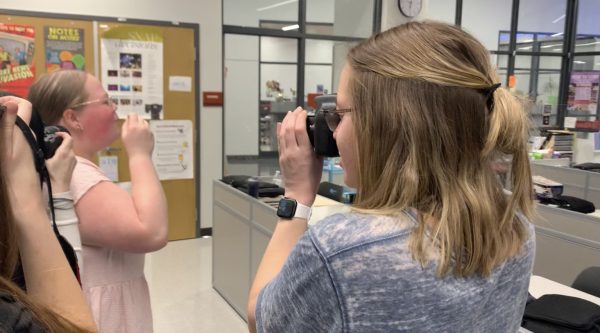
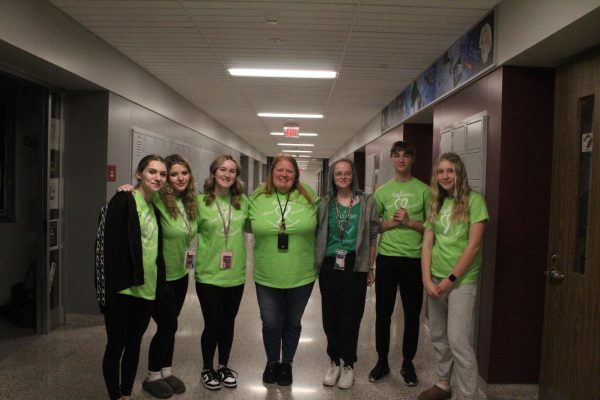
Cassidy Klock • Dec 17, 2021 at 12:34 am
Jayla, this story is so interesting! Very great job!